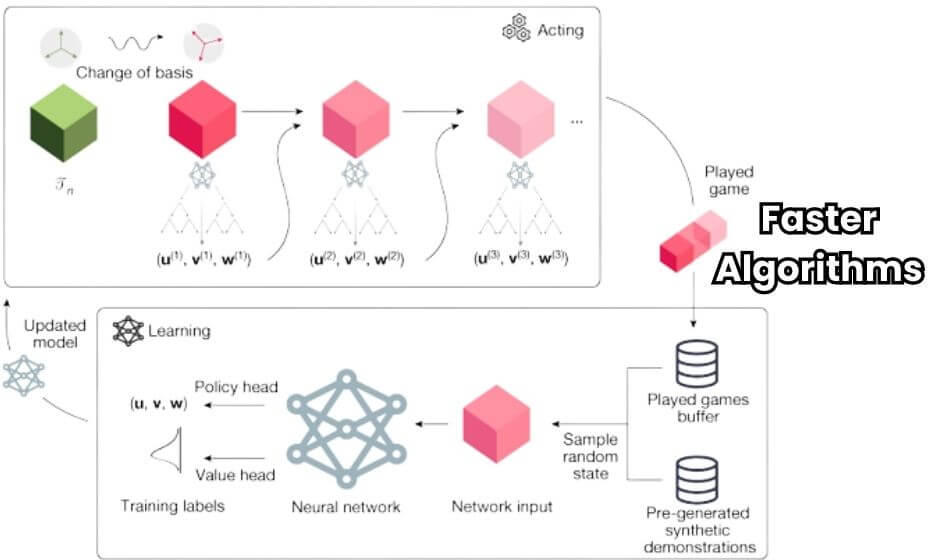The discipline of quantum computing is cutting-edge and has an opportunity to change the field of information technology completely. Quantum computers, which use quantum mechanics with their benefit, can do calculations tenfold quicker than classical computers. This development has huge potential in many fields. Quantum technology has an opportunity to change a wide variety of fields, from cryptography and computations to automated learning and optimization. Despite the difficulties, introducing operational quantum computers holds immense promise to transform the technology industry by clarifying previously unsolvable issues.
Increased Computational Power
Quantum technology has an opportunity to substantially increase computational power, which is one of the primary reasons it is changing the technology sector. Especially compared with conventional computers, quantum technology can solve specific problems at an enormously faster rate. The increased computer capacity has far-reaching consequences in many different areas. The increased computer capacity has far-reaching consequences in many different areas. Quantum computers can solve issues in minutes or hours that require conventional computer years if not centuries, to solve. The growing computing capacity of quantum technology allows for novel approaches to difficult problems, a surge in imaginative thinking, and expanding our understanding of technology and academic boundaries.
Advanced Machine Learning and AI
Considering its outstanding features and the ability to speed up the development of artificial intelligence systems quickly, quantum computation is set to change the landscape of artificial intelligence and AI companies completely. Quantum machine learning techniques can process and analyze them at an unmatched speed, leading to more accurate forecasts and insight. The processing of natural languages, systems for recommendations, and image recognition are just a few instances of the kinds of AI-intensive jobs that may profit from the optimized capabilities of quantum machines. Moreover, they possess better capabilities to handle data with a high number of dimensions, which paves the way for the creation of more intricate AI models. Classical learning techniques could improve AI’s pattern identification, optimization, and data processing abilities in healthcare, banking, and autonomous systems.
Cryptography and Cybersecurity
Quantum computation has a major impact on crypto and cybersecurity. Quantum computers represent barriers to modern cryptography approaches despite their unique computing capacity. Shor’s technique is one example of a quantum algorithm that may effectively factor enormous numbers, posing a threat to public-key cryptosystems like RSA and elliptic curve cryptography (ECC). Secure interaction during the post-quantum era relies on developing quantum-resistant encryption methods. Mathematical problems impenetrable to quantum attacks are the basis for investigating quantum-safe encryption techniques. Quantum computing can enable private communication, particularly through the distribution of quantum keys known as QKD. QKD employs quantum physics to offer an invulnerable key exchange, ensuring safe data transfer.
Simulations and Modeling
Applying quantum computing in simulations and models holds great promise since it will allow for accurate visualizations of complex systems. To better understand the actions of molecules, materials, and biological systems, quantum computers can model quantum effects and interactions with unparalleled accuracy. Because quantum effects play a significant role in physics, chemistry, and biology, this capability has broad implications for those disciplines.
By allowing for precise prediction of molecular interactions and the optimization of drug candidates, quantum simulations can facilitate the drug discovery process. It can also aid in improving chemical processes, constructing novel materials with tailored features, and comprehending quantum behavior within systems of life.
Optimization and Logistics
Quantum computing’s capacity to improve resource allocation, management of supply chains, and time management has broad implications for optimization and logistics. Quantum techniques are particularly well-suited to handling multi-variable optimization problems. This ability has an opportunity to pave the path for more effective and optimal answers to problems across many sectors. The capacity of quantum computers to process huge amounts of data and rapidly evaluate a large number of opportunities has great potential to revolutionize the optimization and logistics operations, leading to greater efficiency, less waste, and better decisions that can lead to substantial cost savings and improved performance overall in complicated structures.
Quantum Supremacy
While a computer with quantum technology achieves superiority over the most capable classical computers, it is regarded as an important development in the field of quantum computers. The achieved goal of the quantum rule indicates the supremacy of quantum computers in terms of processing capacity and their capacity to effectively manage challenging tasks. Quantum superiority is a term with many conclusions, but it frequently refers to the power of quantum computers to solve infeasible challenges for traditional machines. This significant development demonstrates the bounds of quantum computers in solving contemporary issues. It lays the path for advancements in many areas, such as the use of cryptography optimization and research in science.
Faster Algorithms

In concept, quantum computers might run algorithms faster than classical computers. Shor’s approach and Grover’s method are two examples of quantum algorithms that, for certain situations, are exponentially faster than their classical counterparts. For example, Shor’s method may effectively factor in big numbers, undermining standard encryption techniques. Looks in databases can be executed more quickly with Grover’s algorithm.
The ramifications of these quicker techniques extend far beyond the boundaries of computing. They can hasten cryptography computations, creating more reliable decryption and, thereby more secure exchange of information and storage. They also have the potential to completely change how optimization problems are approached, which might have far-reaching implications for transportation, resource allocation, and even financial analysis.
Conclusion
In conclusion, quantum computers can significantly change the IT sector. Increased processing power, better computations, and innovative machine training and artificial intelligence technologies are only some of the advantages that quantum technology offers. The field of cryptography experiments, optimization, and logistics are just a few of the areas that could benefit from this. Though in its infancy, progress in quantum computing shows enormous potential for solving challenging issues outside the scope of classical computers.

